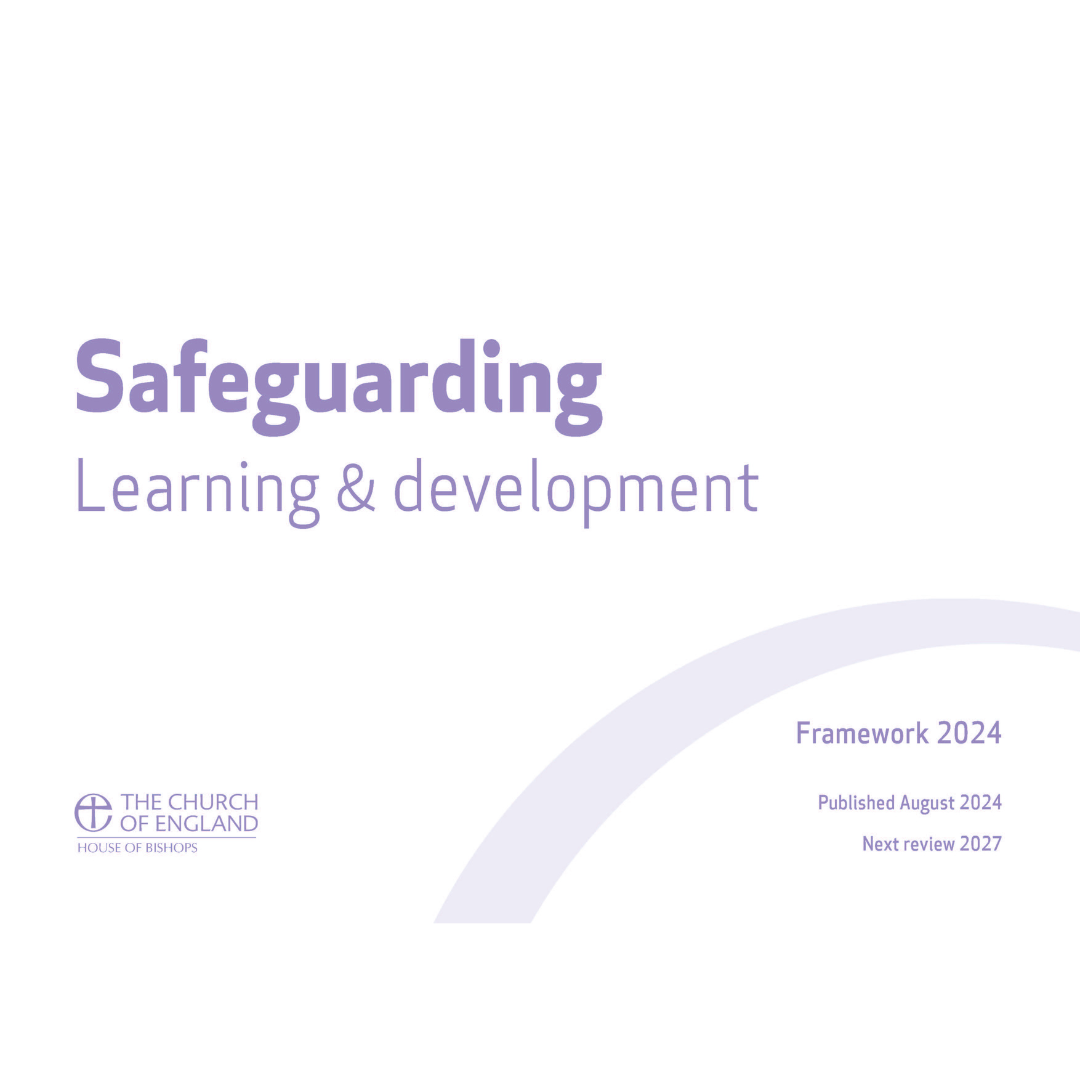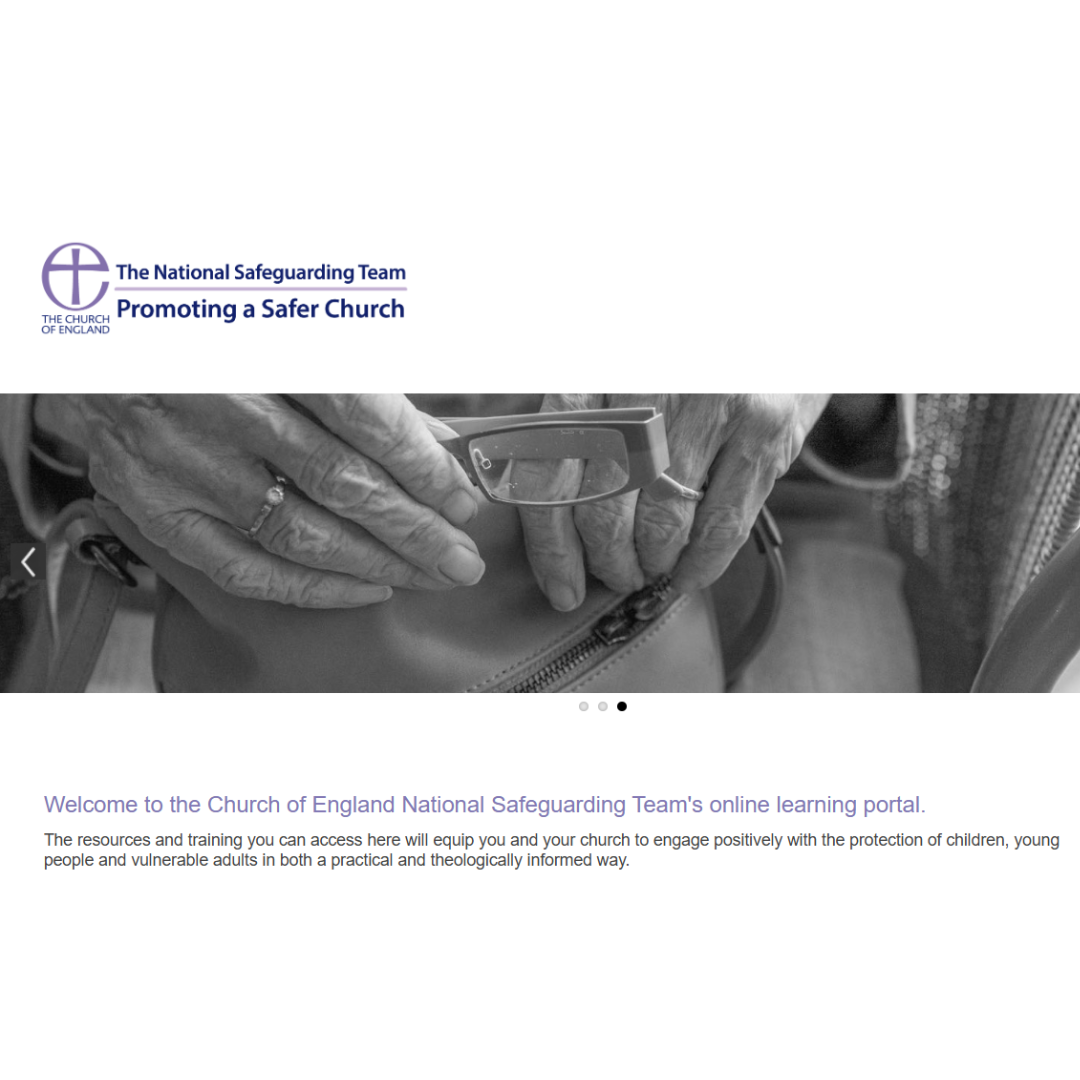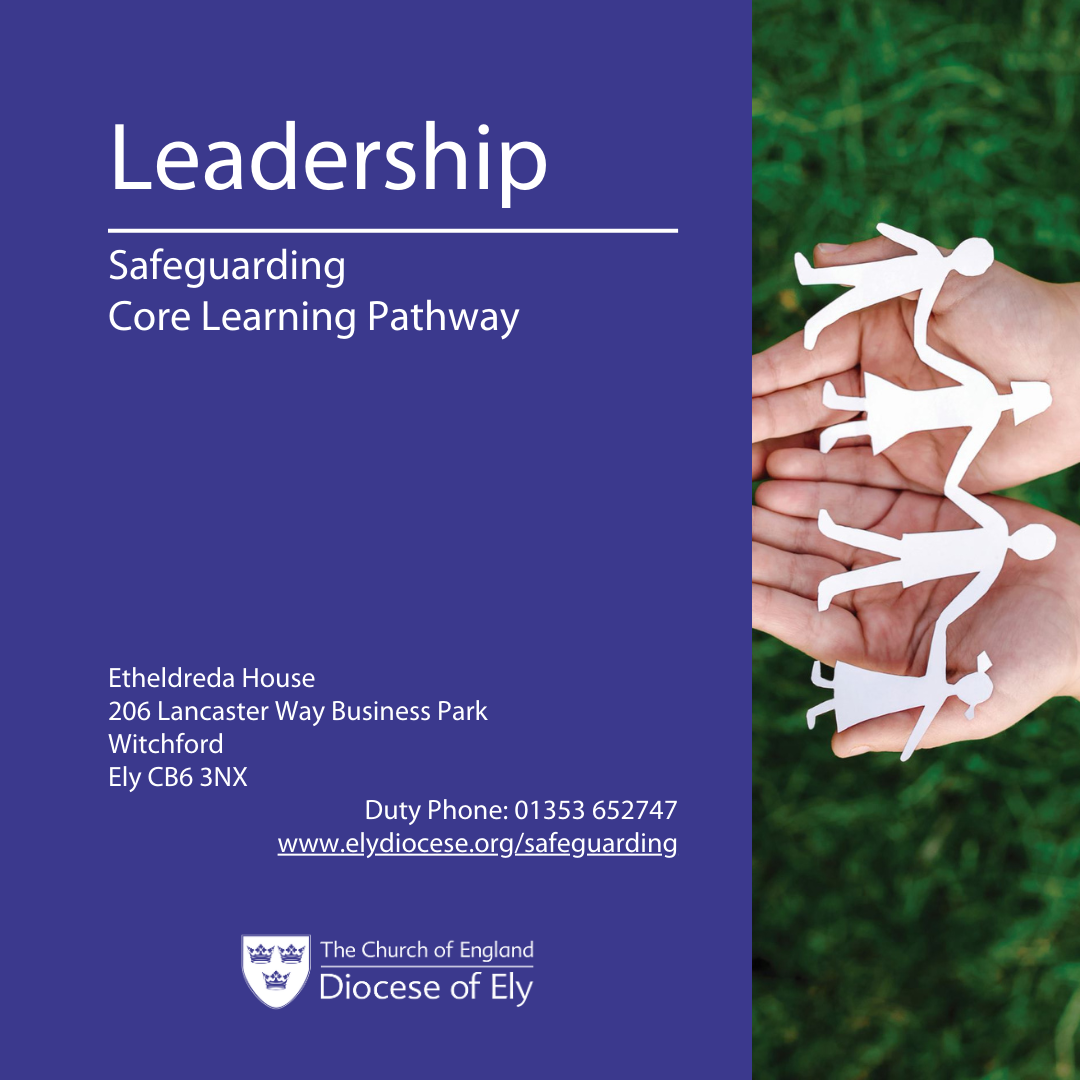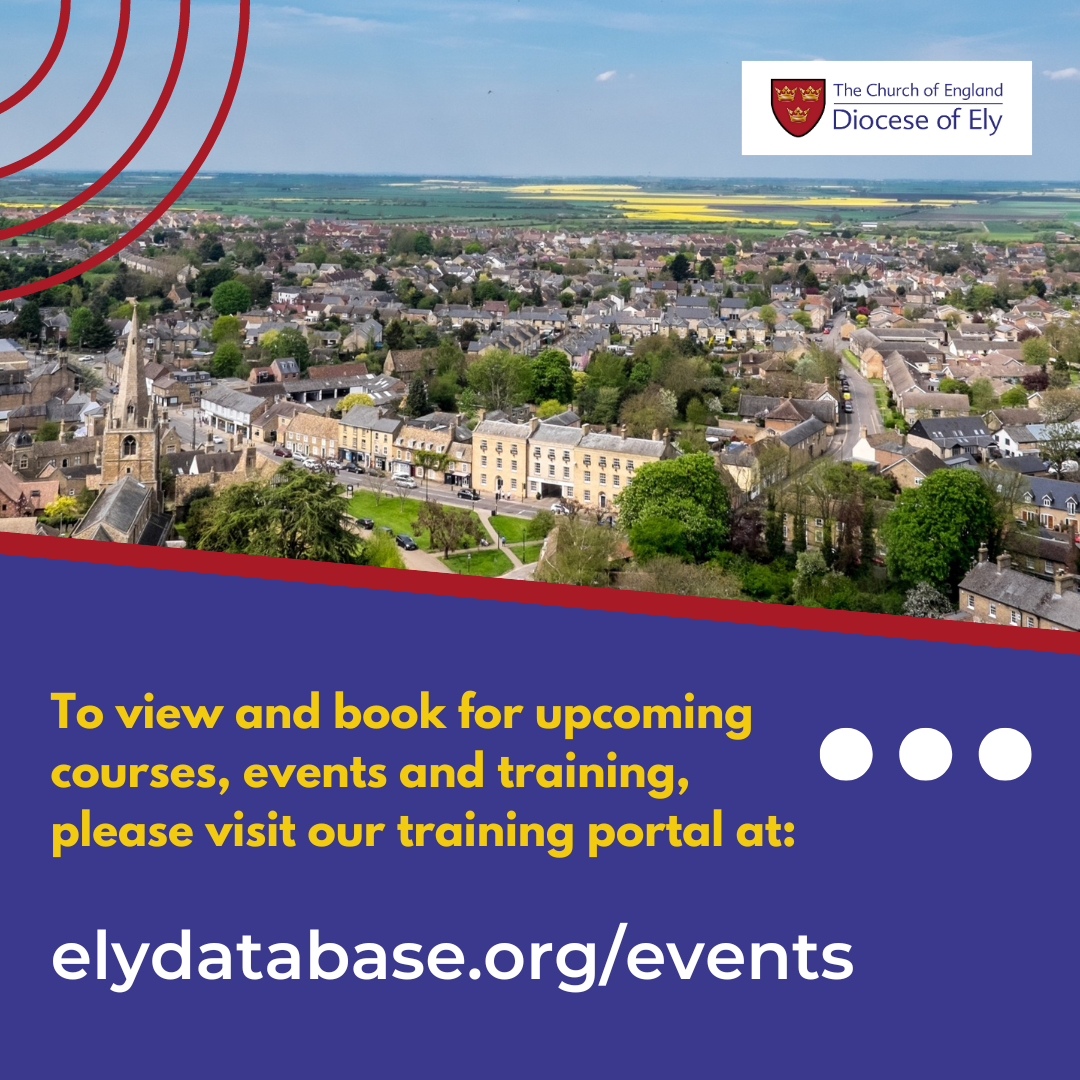- A more detailed summary of each of the following courses can be found in the Safeguarding Learning and Development Framework 2024.
- Visit the Church of England Training Portal to complete the Basic Awareness and Foundation modules online, and to book and complete the required prep work for the Leadership course.
- The Leadership course is delivered either via Zoom or face to face by the Safeguarding Team: Instructions on how to access the Leadership course.
- View and book additional training delivered by the Diocesan safeguarding team on the Diocesan Training Portal.
Overview
- Core safeguarding learning pathways (Basic Awareness, Foundation and Leadership) have been developed as a modular programme which builds learning according to role.
- These pathways should be completed in consecutive order until an individual has reached the required highest level of learning for their role.
- Additional safeguarding learning pathways have been developed to further enhance safeguarding knowledge in specific practice areas, or for specific roles.
The level of the Core Module to which you are expected to undertake will determine which other modules you will need to have previously undertaken. i.e.
Basic Awareness
- If you are only required to undertake a Basic Awareness module, you will only need to repeat that training once every three years.
- It is a requirement that anyone required to complete any of the Core training modules must have obtained the Basic Awareness module at least once.
Foundation
- If you are required to undertake a Foundation module, you must also have completed a Basic Awareness module at least once. You then need to repeat the Foundation training every three years.
Leadership
- Anyone required to undertake this module must ensure they have also completed a Basic Awareness and Foundation module at least once. The Leadership module must then be repeated every three years.
Core Safeguarding Learning Pathways
The core learning pathways are a modular programme with the level of learning required being determined by the role and responsibilities of individuals.
Those who hold positions of responsibility will require more in-depth learning than those who do not. For example, a member of clergy will require learning to Leadership level whereas a volunteer who is acting as an additional adult at a youth group session would require learning to Foundation level.
No accreditation is given against the core safeguarding learning pathways for prior learning, including in other denominations (except for the Methodist Church Foundation module). This is due to Church core safeguarding learning pathways situating safeguarding practice within the unique context of the Church of England and providing participants with the opportunity to relate their learning to their faith.
- The Basic and Foundation pathways provide the essential learning necessary to recognise, respond, record, and refer safeguarding concerns.
- The Leadership and Senior Leadership pathways explore effective leadership behaviours and organisational culture issues in depth.
- Further learning may also be needed for some. Beyond the requirements of core safeguarding pathways, additional pathways – covering a range of subject areas – have been developed.
Which modules should I complete?
Basic Awareness (online)
- Required Attendees -
- All Church Officers.
- Anyone going on to complete any other safeguarding learning pathway.
- Visit the Church of England Training Portal to complete this training.
Foundation (online)
- Required Attendees -
- Anyone holding the Bishop’s licence, commission, authorisation, or permission (clergy, PtO, Readers, LLMs).
- Anyone in a role which involves work with children, young people, or vulnerable adults.
- Churchwardens.
- Anyone going on to complete any other safeguarding learning pathway.
- Pre-ordination or license students, prior to BAP or selection Panel.
- Vergers.
- PCC Members / Lay Chapter Members.
- Staff at Theological Education Institutions with student facing roles.
- Members of the Diocesan Safeguarding Advisory Panel.
- Visit the Church of England Training Portal to complete this training.
CPD Certification
- The Basic Awareness and Foundation have both now been accredited by The CPD Certification Service.
- CPD stands for Continuing Professional Development (CPD) and is the term used to describe the learning activities professionals engage in to develop and enhance their abilities. It enables learning to become conscious and proactive, rather than passive and reactive.
Leadership (2 sessions, via Zoom or in person)
This is designed for those people who play a lead role in shaping the culture of the Church body concerned.
- Required Attendees -
- All clergy holding the Bishop’s licence, commission, authorisation, or permission (including PtO where exemption has not been given) including Honorary/Assistant Bishops and Chaplains.
- All Readers and Licensed Lay Ministers holding the Bishop’s licence (under Canons E6 & E8), together with all others who hold the Bishop’s commission, authorisation, or permission to carry out similar ministerial functions (including PtO where exemption has not been given). (Ordinands need to have completed the Leadership Pathway before their diaconal ordination and lay ministers in training before they are licensed.)
- Non-executive members of Chapter (unless their role in the diocese requires a higher level).
- Safeguarding Officers / Leads in all Church bodies.
- Teaching staff at Theological Education Institutions who are delivering the Leadership Pathway.
- Possible further Leadership required attendees -
- It should also, according to the local context, include such other people who significantly influence the culture of that Church body.
- These may include, for example, lay ministry staff employed by a PCC or BMO, locally appointed leaders of new worshipping communities, focal ministers, and Churchwardens*. (*Leadership Module is NOT a requirement for Churchwardens UNLESS their parish is in vacancy in which case the expectation is that they undertake this module.).
- The requirements for attendance for people in local leadership roles will be determined by agreement between the Bishop/Dean and their respective safeguarding adviser. Where there is a determination that someone must undertake this pathway, that person then becomes a required attendee.
About the Leadership module
- This course is delivered over two sessions. When making your booking you are committing to attend both, if you are not able to attend the second session, you may be asked to rebook and retake session one.
- Instructions on how to access the Leadership course.
- This course comes with some preparation work. This includes reflection, answering some questions and watching a short video before session 1 and reflection and reading before session 2. These tasks will be sent to you 3 weeks before the date of session 1, you will have 2 weeks to complete and submit this to us. Failure to do so will result in you not being able to join the session.
Specialist Modules
Safer Recruitment & People Management (online)
- Required Attendees -
- Line managers and anyone involved in the recruitment of Church Officers (employees, elected members, and volunteers).
- Those with responsibility for administering DBS.
- Safeguarding Officers in all Church bodies.
- Ordinands during IME1.
- Visit the Church of England Training Portal to complete this training.
Raising Awareness of Domestic Abuse (online)
- Required Attendees -
- Anyone holding the bishop’s licence, commission, authorisation, or permission (including clergy, PtO, readers, LLMs) or serving as an officer of the bishop.
- Anyone (volunteers and employees) working with children, young people, or vulnerable adults, including Bishops Visitors and Pastoral Visitors.
- Safeguarding officers/safeguarding leads including designated safeguarding lead.
- Visit the Church of England Training Portal to complete this training.



